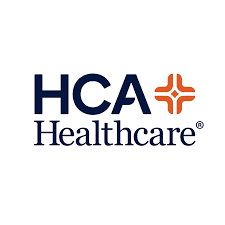Editor's Note Surgical care can be influenced if a patient has high blood pressure, including for preoperative assessment, intraoperative monitoring and to prevent postoperative complications such as heart and kidney injury, stroke, and death. An overview of updated blood pressure guidance updates to the 2017 Blood Pressure Guidelines released by…
Editor's note Enhanced Recovery After Surgery (ERAS) guidelines continue to evolve for specific procedures with the goal to optimize patient recovery and surgical outcome. There is a recognized need for consensus on ERAS recommendations specific to surgery for moderate to severe degenerative cervical myelopathy (DMC)—progressive compression of the spinal cord…

It is no long best practice to deliver education via a traditional lecture with PowerPoint slides or an unimaginative online learning module. “These techniques are boring and not effective,” says Beverly Kirchner, MSN, BSN, RN, CNOR(E), CASC, chief compliance officer for SurgeryDirect, LLC. “Staff just listen or read the information,…

Editor's Note In this session, Beverly Kirchner, BSN, RN, CNOR(E), CASC, vice president of compliance at TriasMD and ambulatory surgery center (ASC) track leader for the OR Manager Conference, spoke on behalf of Parkland Health’s JD Boucher and Karen Garvey on how violence against healthcare workers is rising and requires…

Editor's Note Unchecked surgical innovation can harm patients, derail careers, and erode trust, Bulletin of the Royal College of Surgeons of England October 31 reports. Failures to properly evaluate and monitor new or modified procedures have led to patient harm, surgeon suspensions, and even criminal convictions, per the article, which…

Editor's Note In an opinion piece published by STAT on October 30, authors Judy Stone, MD, retired infectious disease physician, medical journalist, and author, and Judith Feinberg, MD, professor of medicine/infectious disease and professor of behavioral medicine and psychiatry at the West Virginia University School of Medicine, argue that new…

Editor's Note A newly developed framework could significantly strengthen the planning phase of small-scale surgical quality improvement (QI) projects, which often falter due to inadequate preparation, MedicalXpress October 16 reports. According to a report from the American College of Surgeons (ACS), published in the Journal of the American College of…

Editor's Note Advocacy begins where safety meets purpose. That was the resounding message from UF Health Shands’ Michele Brunges, MSN, RN, CNOR, CHSE, director of surgical services; Katherine Hayes, BSN, RN, CNOR-CARD, nursing professional development specialist for perioperative services; and Kristy Perry, MSN, RN, CNOR, clinical coordinator of the north…

Editor's Note The Centers for Medicare & Medicaid Services (CMS) has activated shutdown rules that confine Medicare survey and certification work to health and safety essentials, according to an October 21 memo from the agency. Per the revised memorandum, excepted work during the federal shutdown includes investigations of complaints and…

Editor's Note Cesarean delivery remains the most common major surgery in the US, but new evidence highlights its impact on recovery, pain, and sleep health for mothers. In an American Medical Association (AMA) interview published by HCA Healthcare Today on October 10 and new research presented at the ANESTHESIOLOGY® 2025…